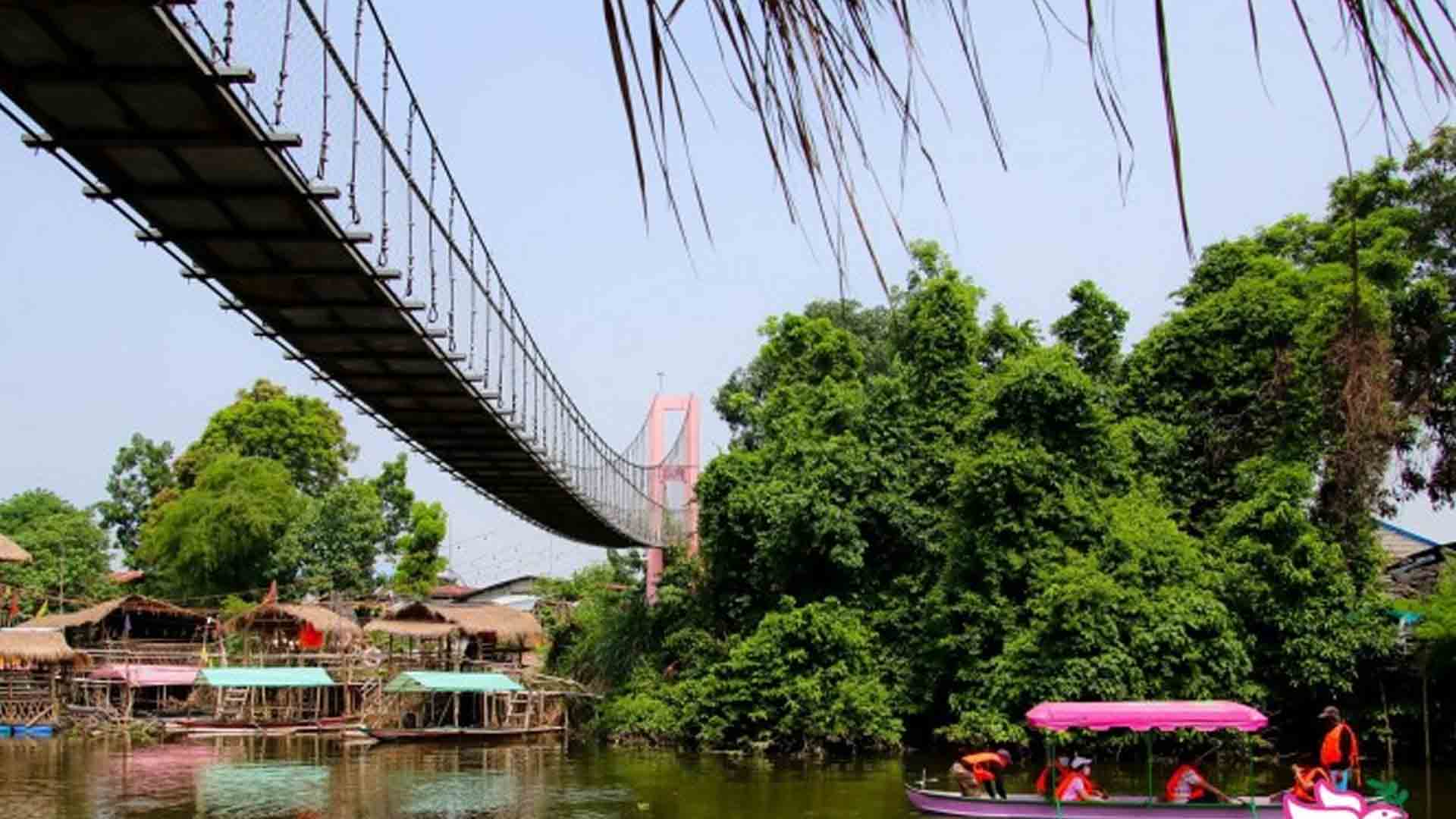The Duterte administration has implemented over 15,000 infrastructure projects in Central Luzon in a span of five years as part of its mission to stimulate countryside development.
Since 2016, the Department of Public Works and Highways (DPWH) has completed the construction, maintenance, widening, upgrading, and rehabilitation of a total of 2,438 kilometers of road and 489 national bridges despite the last 16 months marred by the Covid-19 pandemic.
Likewise, a total of 13,219 classrooms were built while 1,617 flood mitigation structures were completed.
Twenty-three evacuation centers were constructed to provide livable temporary shelters for residents and minimize the use of school buildings during typhoons and other natural calamities.
Under the “Build, Build, Build” program, notable projects included the Plaridel Bypass, Pulilan-Baliuag Diversion Road, Subic Freeport Expressway, New Clark City Phase, Clark International Airport new terminal building, and Central Luzon Link Expressway Phase 1, all seen to pave the way for the desired economic growth of the region.
DPWH Secretary Mark Villar said that not even the ongoing Covid-19 pandemic could stop them from realizing the national government’s goal to erect more vital infrastructures across the country.
“The DPWH has been working 24/7, even in the face of this pandemic to finish all projects committed under the Build, Build, Build program following the instructions from the Chief Executive to meet our target, before he steps down as the country’s 16th President,” Villar posted on social media on Tuesday.

Community-based
Aside from the flagship infrastructures, there were projects to improve the lives of communities.
For residents in San Jose City, Nueva Ecija, the Sibut Bridge provides convenient and safer travel.
Mario Pallacer said the new bridge makes travel easy from the city to neighboring towns.
“Noon wala pa ang bagong tulay, ang pagbiyahe ay matagal, trapik at maalikabok. Ngayon mabilis at convenient (Before the construction of the new bridge, the travel took too long, traffic was slow, and it is dusty. Now, it is faster and convenient),” Pallacer said in an interview.
Furniture shop supervisor Reynaldo Beltran said the new bridge opens up more economic opportunities for residents.
“Malaking pagbabago. Lumakas ‘yung furniture namin (There is a big change. Our furniture business has grown stronger). Our travel time before was 15 to 30 minutes before reaching the city proper. Now, it only takes five minutes. Napapabilis ang transactions sa lahat (Transactions are faster for everyone),” Beltran said.
The construction of the Berang Hanging Bridge in Sta. Rosa, Nueva Ecija, on the other hand, provides relief to residents, especially to parents who no longer have to worry about the safety of their children who cross the river on a makeshift raft.
“My grandchildren almost got killed because the makeshift raft that we made was unstable. That’s why when we learned about the bridge, I felt relieved,” Elizabeth Quibuyen, a resident of Barangay San Pedro, said.
Norberto Mangalinao, chair of Barangay San Pedro, said the new bridge benefits farmers and students.
“They do not need to use makeshift boats anymore. The transfer of goods to the other barangays is a lot easier,” Mangalinao said.
Businesswoman Queenie Mendoza said the new hanging bridge made a huge difference on their lives.
“It opened up a lot of different business opportunities. When the people saw the beauty of the hanging bridge, it instantly became famous because of the scenic view,” Mendoza said.

Convenience
Meanwhile, the completion of the Diaman-Dikildit Road in Maria Aurora, Aurora meant improved mobility and access to services.
“With the completion of the two-lane road, we no longer have to cross the Diaman River and traverse rough trails especially when transporting our farm products to the nearest market,” farmer Roy Santillan told the Philippine News Agency.
Likewise, residents and farmers no longer have to endure unpaved and muddy roads, especially during the rainy season, with the completion of a concrete road project in Concepcion, Tarlac.
Prior to the construction of the 1.2-kilometer road, residents had no choice but to walk or ride carabao-driven carriages as motorized vehicles cannot pass through.
“With the concrete road, people here and even motorized vehicles can now pass by and enjoy shorter travel time,” Lino Dimaano, a resident of Barangay San Isidro, said.
Two flood control structures were likewise finished in Camiling, one of the towns in Tarlac identified by the National Disaster Risk Reduction and Management Council as vulnerable to flooding.
“Camiling is considered as one of the fastest-growing towns of the province but is also one of the areas in Tarlac that is prone to flooding. With the construction of the flood control structures, residents of Camiling will now be less susceptible to flooding,” DPWH District Engineer Erelina Santos said in a previous statement.
With these projects, residents agreed that President Rodrigo Duterte will leave the next administration with a robust pipeline of infrastructure projects and ensure that Filipinos will benefit from a legacy of continuity. (PNA)






















